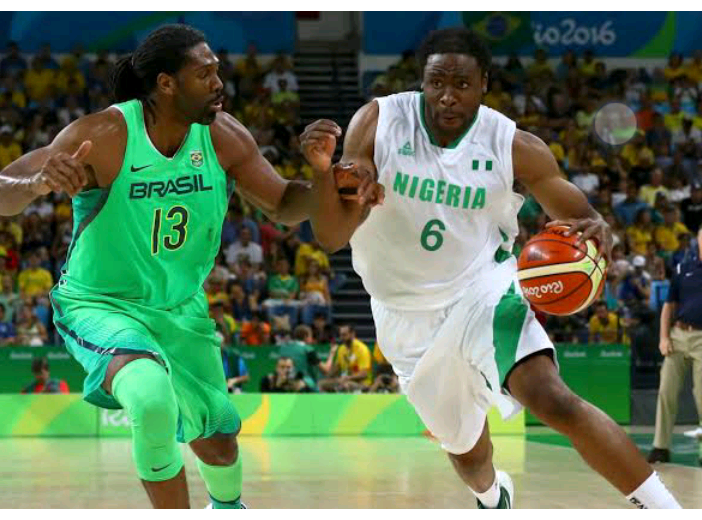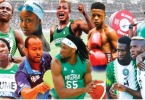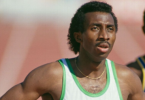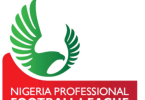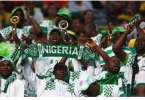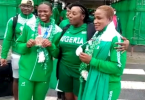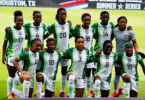Promoting basketball as a major sport in Nigeria is long overdue – as scores of talented players have been emerging from Nigeria. It is now open knowledge that after European soccer, basketball is arguably the next most popular sports in the world – Nigeria included. Not surprisingly, there is a steadily growing interest in competitive basketball amongst Nigerian youths.
The zeal with which organizations such as the NBA and Euroleague have been promoting basketball globally, and rewarding players, is unprecedented. These associations are eagerly welcoming and grooming talented Nigerian players – whisking them away with alacrity. There is no doubt that the local basketball leagues already have stiff, superior competition waiting for them.
Basketball as a Major Sport in Nigeria – Investigating The Weak Structures
Back in 2017, the Nigerian Basketball Federation (NBBF) – Nigeria’s basketball oversight body, was rocked with a leadership crisis. NBBF subsequently split into two factions. Tijani Umar was elected as NBBF president. However, Musa Ahmadu-Kida also emerged as the president of the other faction – which was more recognised by the Fédération Internationale de Basketball (FIBA). FIBA is a reputable international basketball entity supervising women’s world basketball tournaments.
A spate of legal battles between the two factions of NBBF commenced. Various broadcasters and eager sponsors faced a disconnect over who is the authoritative faction of NBBF to consult with. The situation led to serious confusion, severely truncating attempts to promote basketball as a major sport in Nigeria despite its potential.
And just a year before that in 2016, the Federal Ministry of Youth Development, and the National Sports Commission were merged. It led to the creation of the Ministry of Youth and Sports. The new sports ministry inherited the 16 functions of the National Sports Commission. These include:
- Formulation of a sports policy
- Coordinating sports development activities in Nigeria
- Providing financial assistance to host sports activities
- Cooperating and liaising with partners towards the development of sports in Nigeria
On the other hand, the NBBF as the direct supervisory body over basketball in Nigeria, is also tasked with organizing national basketball competitions. Clearly there is an overlap in the functions of the NBBF and the Ministry of Youth and Sports. However, there was no move to clearly define and separate the roles of the two entities as regards supervision of basketball at the national level.
A further complication exists in the insistence of the government to directly control and deliver programmes in Nigerian sports. The lack of staff with the requisite technical knowledge within the ministry, but who are tasked to handle sports coordination has created serious lapses. Furthermore, there is inadequate internal regulation of sports administration in either the NBBF, or the Ministry of Youth and Sports.
A fallout of the NBBF crisis was an announcement of a two-year ban on international basketball activities on the 12th of May 2022. The Presidency and the Ministry of Youth and Sports Development, jointly imposed the ban on all Nigerian basketball teams. This was done in order to resolve the discord amongst stakeholders, in an attempt to reorder and revive local basketball leagues. An Interim Management Committee (IMC) was set up by the sports ministry to oversee the entire process of reviving and promoting domestic basketball.
Roughly a month after the ban, the sports ministry announced a lifting of the ban by the Presidency. It cited a letter of appeal from the NBBF to that effect. And the IMC was dissolved. The letter arrived too late to stop the Nigerian women’s basketball team, D’Tigress – from being replaced by FIBA. The Fédération Internationale de Basket-ball (FIBA) had replaced Nigeria with Mali in the upcoming 2022 Women’s Basketball World Cup tournament.
Basketball in Nigeria: Foreign Associations Move in
The NBBF crisis, coupled with a weak national sports policy, has had an unfavorable impact on domestic basketball activities in Nigeria. There are several deficiencies militating against promoting basketball as a major sport in Nigeria. The sport lacks adequate coaching, infrastructural development, equipment, funding, sponsorship, and incentives for players. The situation has also discouraged the private sector from contributing to the promotion of local basketball leagues.
Undoubtedly, many talented basketball players have emerged from school-level and private competitions (as well as private basketball academies) around the nation. These players invariably go international, rather than play for poorly-rewarding local basketball teams, or even represent Team Nigeria in international tournaments. Thus they end up engaged by lucrative basketball organizations such as the American-owned National Basketball Association (NBA), the WNBA and Euroleague for their own basketball leagues.
Additionally, the NBA, WNBA and Euroleague now have their training camps and offices in key locations across Africa – including Nigeria. Nigeria’s local leagues stand very little chance of competing for talented players with these international basketball bodies. Unless the Nigerian government gets serious about implementing a meaningful sports policy that will be rewarding for home-grown players.
Recommendations for Promoting Basketball as a Major Sport in Nigeria
The present administration of President Bola Tinubu proposed in his manifesto that a new National Sports Policy will be implemented. If the policy is established, hopefully it will engender a meaningful national sports development programme from the grassroots. And it should cut across all aspects of Nigerian sports – including basketball, taking into account the need for ample funding and training.
It will equally be advisable for the government to cooperate with these foreign basketball league promoters. The simple reason being that talented basketball players would be recognised and hired internationally while they still affiliate with the Nigerian team. Otherwise the Nigerian government will permanently lose these skilled players to more lucrative teams abroad.


